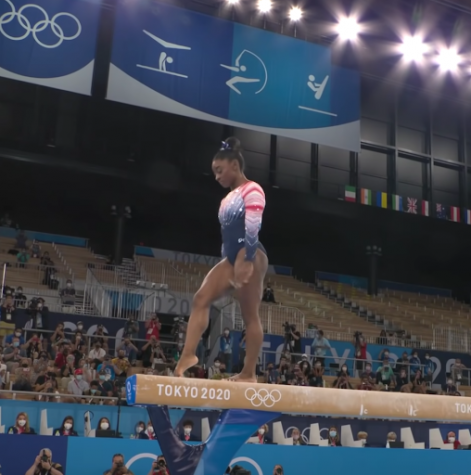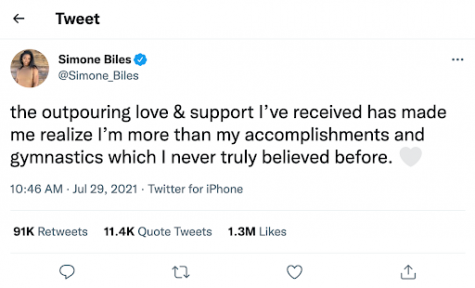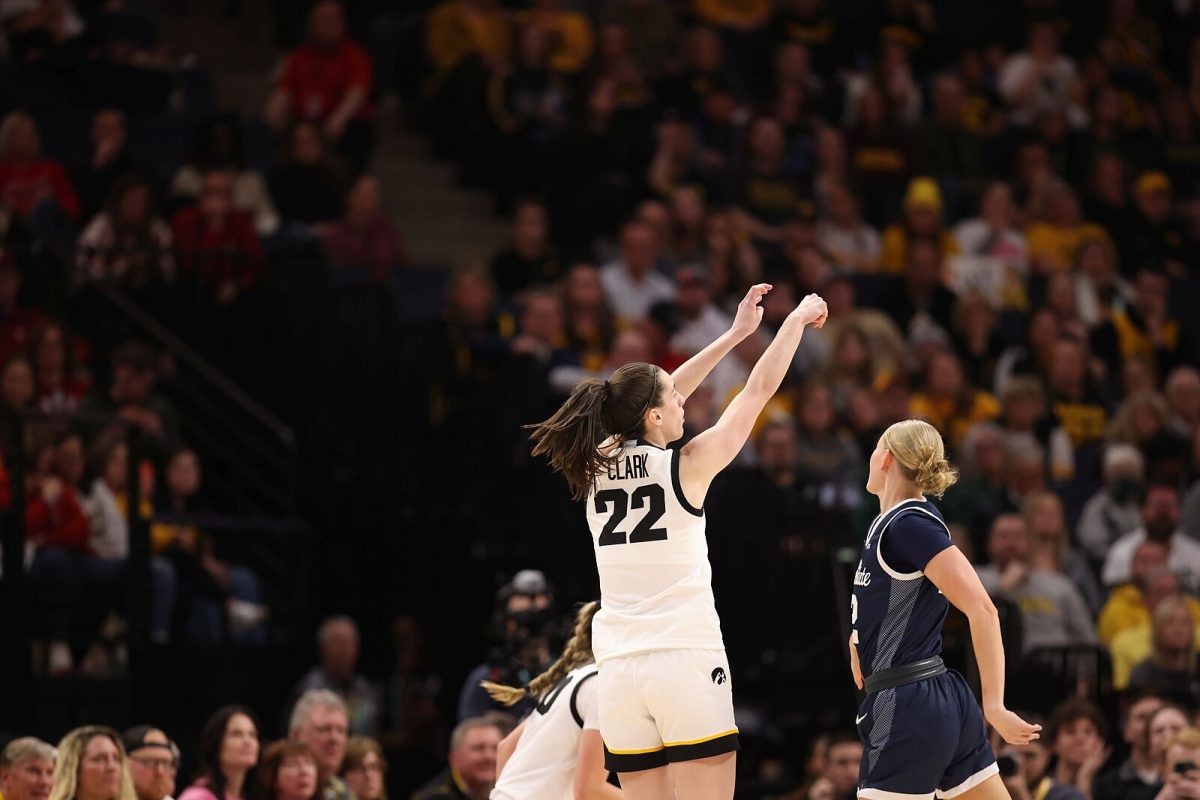What the 2020 Olympics taught us about the impact that mental health can have on athletes

Image credit: Olympics, Youtube
Simone Biles competing in the Women’s Balance Beam in Tokyo 2020 Olympics.
November 10, 2021
2021 was a turning point in how people perceive mental health in athletes. The past two years have been especially challenging for the mental health of athletes, as the postponement of the majority of their events, the quarantines, and competing without the cheers and support from the audience have added extra stressors never experienced before. Naomi Osaka, a four-time Grand Slam champion and ranked number one by the Women’s Tennis Association, was one of the first athletes to openly discuss her mental health.
During the French Open in June 2021, Osaka asked to cancel her mandatory press conferences, and soon after, withdrew herself from participating in Wimbledon following the French Open. Osaka received numerous criticisms from the public mainly for her decision to cancel her press conferences. Most argued that press conferences were part of her obligations as a professional athlete and that she should not be competing while leaving the press interviews just for “self-care.” Even other formal professional tennis players like Martina Navratilova commented in the Tennis Channel that Osaka needed to “woman up,” and the official Roland Garros French Open account tweeted photos of four professional tennis players, Kei Nishikori, Rafael Nadal, Aryna Sabalenka, and Coco Gauff with the caption: “They understood the assignment,” purposely excluding Osaka and praising the other players for “completing” their roles, clearly attacking Osaka’s decision at the French Open.

Despite the backlash she received, Osaka continued to take a stance on the importance of mental health for athletes, sharing her opinion in a Time interview:
“I communicated that I wanted to skip press conferences at Roland Garros to exercise self-care and preservation of my mental health. I stand by that. Athletes are humans. Tennis is our privileged profession, and of course there are commitments off the court that coincide. But I can’t imagine another profession where a consistent attendance record (I have missed one press conference in my seven years on tour) would be so harshly scrutinized.”
Although the public response was not all positive, Naomi Osaka paved the way for multiple other athletes to open up about their mental health as well. Following Osaka’s announcement at the French Open, mental health became an area of focus for the 2021 Tokyo Olympics.
Simone Biles, with 32 Olympic and World medals, is currently the most decorated U.S. women gymnast in history. Biles has already competed for one floor round in the Olympics 2021 team finals when she announced her decision to withdraw from competing further in the team All-Around Final, after the gymnast missed a twist in her floor vault. At the time, Biles did not give a definite answer on withdrawing from all future competitions, but on Wednesday, July 27, the USA Gymnastics announced her withdrawal from the individual All-Around finals on Thursday. Within moments following the announcement, she was the center of media attention. Initially, it was announced that Biles had withdrawn due to a medical issue, but she later explained on Instagram the story of her twisties from before the Olympics, and that “physical health is mental health,” as she talked about the danger of continuing the competition for her.

While Biles received criticism for her decision to withdraw, most showed support for the Olympian, including Michelle Obama, who tweeted an encouraging message saying, “We are proud of and we are rooting for you.” The US team ended up receiving silver in the All-Around Team Final, and following the Olympics, Biles talked in an interview on the Today Show about how crucial the withdrawal was both for her physical and mental health. For Biles, the public withdrawal announcement did not bring so much backlash and embarrassment upon her, but rather allowed her to feel like a human. As an elite athlete, she had felt removed from the rest of the world, but by publicly opening up about her mental health, she found many could relate to it and allowed her to realize that her value was more than her athleticism.

Compared to the response Naomi Osaka received, Simone Biles’s announcement to withdraw from the Olympics has received fairly positive feedback from the media and the audience. Did Osaka’s courage to voice up about the importance of mental health play a role in this change of reactions from the public? We may not be able to completely assume so, as Osaka, who had initially withdrawn from the media interviews rather than the competitions itself. However, as more and more athletes like Osaka and Biles continue to speak up on the necessity of improving support for athletes’ mental health, we are seeing a clear shift in how their mental health is valued.
For the first time, a psychiatric counseling clinic was set up at the Tokyo Olympic and Paralympic villages, and the British Olympic Association established a team of professionals solely dedicated to mental health for the 2021 Olympics. The Australian softball team implemented a well-being mobile app to track the mental states of the players.
Yet, there were still many individual Olympic Associations, especially in Asian countries like China and Thailand, who did not have psychiatric professionals brought to the Tokyo Olympics due to the limit in the number of players and members they could bring. Especially as the COVID-19 restrictions continue to affect the careers of the athletes, there is still work to be done on establishing a solid mental healthcare system and destigmatizing the negative view of mental health issues, especially for athletes.
The Tokyo 2021 Olympics changed the way the public, the teams, and the athletes themselves make efforts to take care of their mental health, but this is only the first step. Although participating countries must continue to put emphasis on the athletes’ mental health, we must also play our part in educating ourselves on the impact mental health can have on athletes.




















































